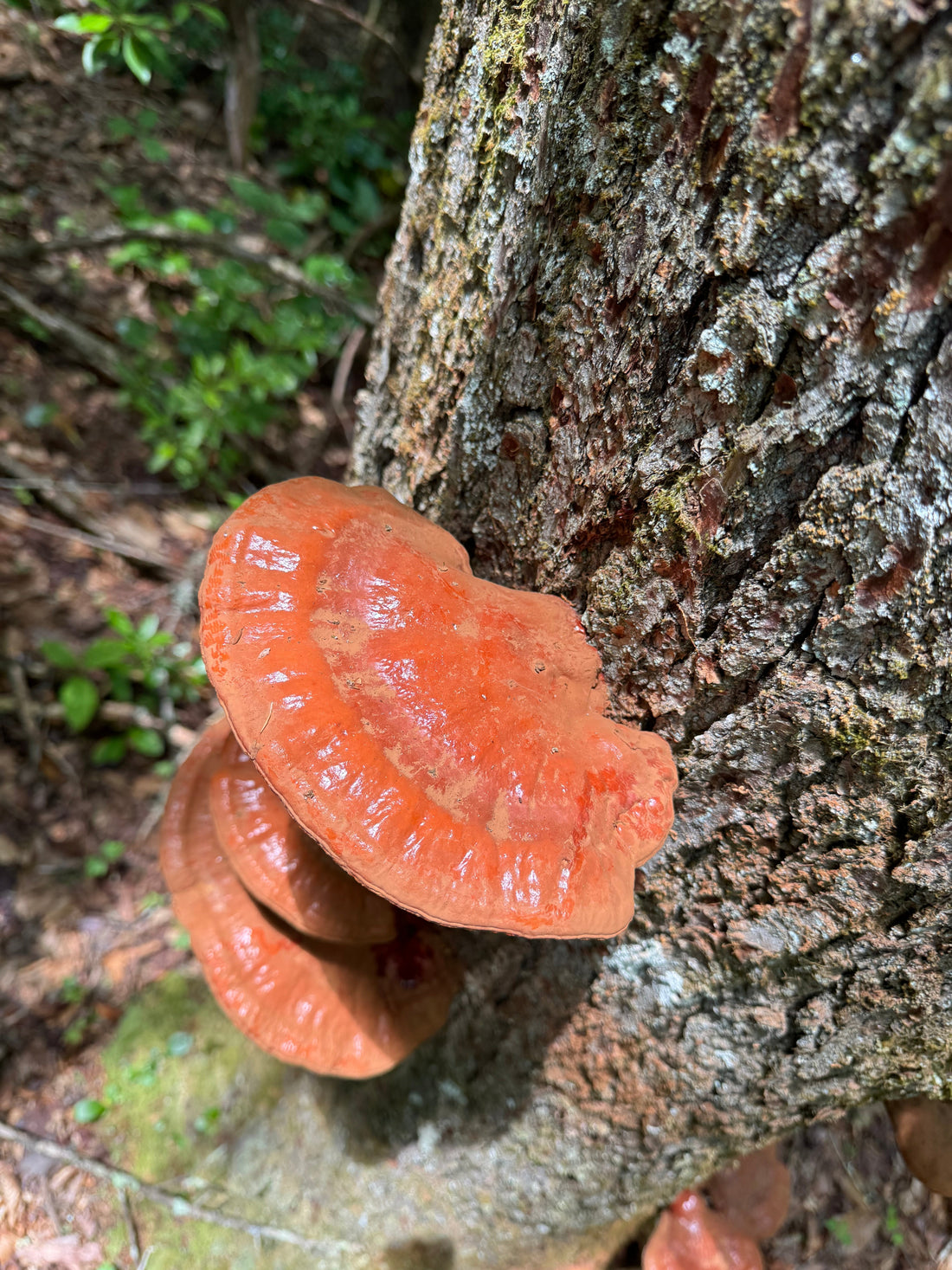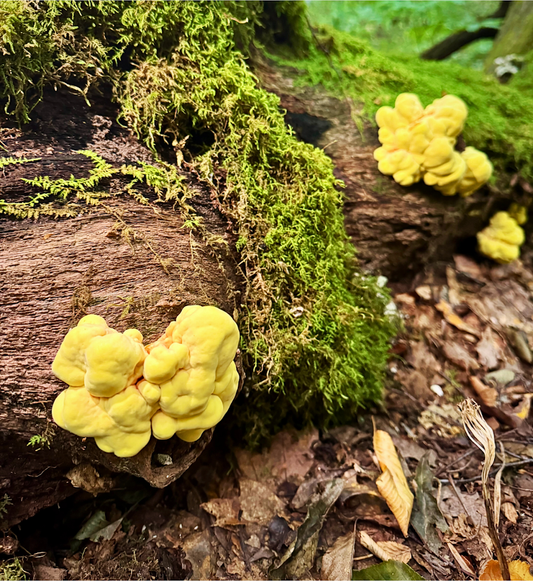
Reishi Mushroom (Benefits, Side Effects & Dosage)
The Reishi mushroom (also known as Ganoderma Lucidum, Ganoderma Tsugae or "Lingzhi" or "The Mushroom of Longevity") is a medicinal mushroom that grows wildly in Asia, eastern US and occasionally in Czechia. They primarily grow on dead or decaying hardwood trees with the exception of G. Tsugae which grows on hemlock trees. Reishi is edible when young and soft but it is mostly used for potential medicinal purposes when they are fully grown and reach their most potent stage.
 Young G. Tsugae growing on a fallen hemlock tree.
Young G. Tsugae growing on a fallen hemlock tree.
When taken for their health benefits, Reishi mushrooms are dried for tea or taken as an extract powder, liquid, or capsule. They are believed to have various health benefits, including boosting the immune system, anti-cancer properties, improving fatigue, sleep and more.
Here are some of the key benefits of Reishi:
1. Immune System Boost
One of the most important effects of the Reishi mushroom is that it can boost your immune system. Studies have shown that Reishi can affect the genes in white blood cells, which are critical parts of your immune system. Reishi mushrooms contain beta-glucans a form of soluble fiber which helps regulate blood sugar.
2. Improves Sleep
Reishi mushrooms can help the body respond to anxiety and other types of stress, which can lead to a better sleep. They contain a high concentration and large variety of naturally sedative compounds called 'triterpenes', which work with the nervous system to induce calm, relaxation and drowsiness. They have also been shown to interact with GABA (Gamma-Aminobutyric acid) - a neurotransmitter that promotes relaxation and sleep.
3. Improves Mood & Reduces Stress
Reishi is a powerful adaptogen, which helps regulate the release of stress hormones that influence mood and emotion. Adaptogens are naturally occurring substances that help to increase the body's resistance to various stressors and may help protect the body from damaging effects of stress. When your body is in a heightened state of stress, cortisol is released, which triggers the flight-or-fight response. Emerging research is beginning to show us how the unique compounds found in Reishi may help relax and de-stress.
4. Anti-cancer Properties
The powerful anti-inflammatory properties of Reishi mushrooms - antioxidants, beta-glucans, polysaccharides, and amino acids - have all been found to have antitumor properties. According to various studies, G. Lucidum carries some promising anticancer and immunomodulatory (affecting the immune system) properties. The mushrooms in supplementary form have become a popular alternative treatment for cancer patients.
Although more research needs to be done, Reishi mushrooms seem to be a promising addition related to cancer-fighting aid in the future.
5. Reduce Sign of Aging
If used topically, Reishi mushroom is a powerful anti-aging ingredient that does everything from helping to restore skin's natural glow, to protecting the skin from environmental elements trying to harm it. They also may help restore skin's elasticity and lessen the appearance of wrinkles, temporary redness and dark spots.
Between restoring skin's glow, reducing the appearance of fine lines and wrinkles, calming the skin, Reishi mushrooms are an incredible anti-aging ingredient.
6. Lower Blood Pressure & Improve Heart Health
Triterpenes found in Reishi mushrooms may have blood-pressure lowering properties. They also offer additional benefits, such as with blood clotting and lowering cholesterol. This is likely because triterpenes may help reduce inflammation in blood vessels and arteries and improve overall blood circulation. In some cases, high blood pressure and high cholesterol might be caused by hormonal imbalances caused by stress or thyroid disease. The compounds in Reishi mushrooms may help restore hormone levels and reduce cardiovascular problems. 
Side Effects:
Reishi mushrooms have been used for thousands of years to manage various conditions, and very few side effects have been reported. Mild digestive upset and skin rashes may occur, but these typically go away over time or may only affect people with impaired immune systems.
Reishi mushroom extract is possibly safe when used for up to one year. Powdered whole Reishi mushroom is possibly safe when used for up to 16 weeks. Reishi mushroom can cause dizziness, dry mouth, itching, nausea, stomach upset, and rash.
Who should not take Reishi mushrooms?
Reishi mushrooms are known to lower blood pressure. Those who already have low blood pressure or are taking a prescribed blood pressure medication should avoid Reishi mushroom supplements. This advice also applies to those taking immunosuppressants, as Reishi mushroom supplements may counteract their effectiveness.
Pregnant or breastfeeding women - there isn't enough reliable information about the safety of Reishi mushrooms during pregnancy or breastfeeding.
Dosage:
Reishi mushroom has most often been used by adults in doses of 1400-5400mg by mouth daily, usually in divided doses. Reishi mushroom extracts have also been used in lower doses. The right dosage of Reishi mushroom extract or powder can vary widely depending on which form of the mushroom a person uses. It is important to check the label of the specific product for the recommended dosage. Before taking a Reishi mushroom supplement, always talk to your doctor. Supplements can interact with other medications, potentially causing adverse effects, and worsen some health conditions.



